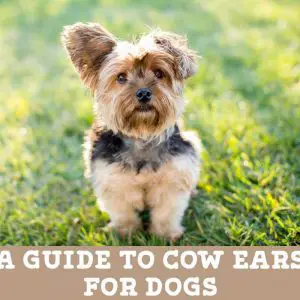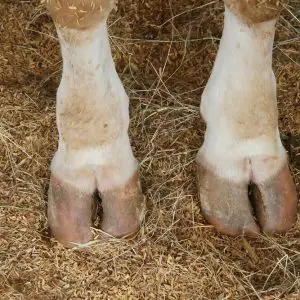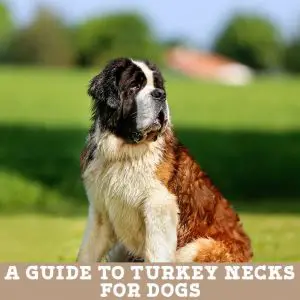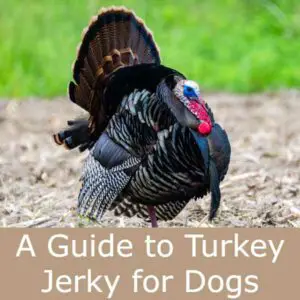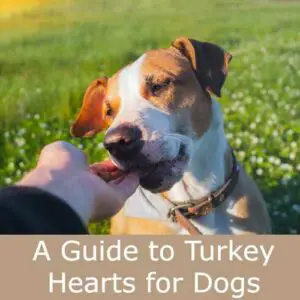Turkey gizzards are becoming a more common snack for dogs. They are high in protein and low in fat. They contain a variety of useful vitamins and minerals and are easily digestible. What exactly are turkey gizzards? Are they safe to feed our dogs? What are the health benefits and are there any disadvantages of feeding them? This article will answer all these questions and help you decide if turkey gizzards are an appropriate snack for your dog.
Key facts
Turkey gizzards are a healthy lean treat option for your dog.
They can be fed in raw form or dehydrated as a dried food treat. They can be served whole or chopped into smaller pieces.
Turkey gizzards are a natural product and don’t contain any additives or preservatives. They are high in protein and low in fat and provide a healthy nutrient-dense snack for your dog.
Turkey gizzards may be beneficial for maintaining good dental health. Turkey gizzard treats provide valuable mental stimulation by providing a safe chew treat that encourages healthy recreational chewing habits.
Turkey gizzard treats are lower in calories compared to other dog treats on the market, although it is still possible to overfeed them so caution must be taken.
Risks of feeding turkey gizzard treats include bacterial contamination, choking, digestive irritation and gastrointestinal blockages.
Some popular alternatives to turkey gizzard include chicken gizzard, veterinary-approved dental chews, dried sardines and beef tendons.
What Are Turkey Gizzards?
The gizzard of a turkey is an internal organ often referred to as a stomach which is part of the bird’s digestive tract. It is a strong muscular pouch which is used to mechanically break down food such as nuts and seeds that the bird eats. Birds often swallow small bits of sand and gravel which conveniently sit in the gizzard and help grind up the food.
Provenance
Turkey gizzards come in raw and dried forms for dogs. They are made from the gizzard of the turkey which is an organ in the digestive tract. The gizzard is usually viewed as an off-cut of meat as they are not normally eaten by humans and are often discarded when the carcass is being prepared.
They are often cheaper than some of the other chew products available on the market due to the fact they are not a popular piece of meat for human consumption. In the UK we produce a large amount of turkey meat. Most of the big supermarkets source their produce from British farms. The largest producer of turkey in the UK is Bernard Matthews Turkey Farm.
When choosing turkey gizzard products for your dog, it is always good practice to try and source as locally as possible to reduce the carbon footprint. Welfare standards vary greatly depending on the country of origin so always look for turkey products that have been approved by one of the following –
Scottish Organic Producers Association.
Preparation
Turkey gizzards can be fed in their raw form or as a dehydrated snack. In the snack form, some are left whole, some are chopped up into smaller pieces and some can be stretched out into sticks for dogs to chew. Due to the many forms they are available in, they come in various shapes and sizes. The dried forms are usually slowly baked at a very low temperature or left to dry out naturally or freeze-dried.
raw feeding
Did you know?
If you are feeding your dog an exclusively raw diet, it is acceptable to include turkey gizzard as part of their diet. It can either be fed raw or in the dried, freeze-dried or dehydrated form. All raw food products need to be treated with caution as they all come with a risk of contamination with certain bacteria including Campylobacter, Listeria, E coli and salmonella.
These pathogens don’t usually cause disease in dogs, however, they can be easily passed on to humans. They can cause significant disease in anyone in the household who is vulnerable, for example, immunosuppressed people, young infants or the elderly.
If handling raw food products, it is strongly advised that strict hand-washing regimes are adhered to and that all surfaces and utensils are cleaned thoroughly after contact with the product.
Benefits of Turkey Gizzard for Dogs
Key benefits
Mental Stimulation
Turkey gizzards allow your dog to display healthy chewing habits. This is believed to reduce stress and keep your dog occupied in a safe way.
Oral and Dental Health
Healthy chewing habits mean an increase in saliva produced and also may help in the mechanical debridement of plaque and tartar from your dog’s teeth.
Nutritional Benefits
Turkey gizzard is a high-protein low-fat treat with lots of different vitamins and minerals. These are important for your dog’s health.
Hypoallergenic
Turkey gizzards contain only one source of protein. They are made of 100% turkey meat and nothing else, so as long as your dog is not allergic to turkey, it will be safe to feed them this treat.
Nutritional benefits
Gizzard is a brilliant source of protein as it is made from muscle. It is low in fat, especially compared to some of the other chews on the market. It is easy to digest and full of useful vitamins. It contains high amounts of vitamin B12 and vitamin B3 which are beneficial for your dog. It is easily digestible and highly palatable too.
Mental Stimulation
Turkey gizzard is a tough chewy treat and when fed to your dog it can provide valuable mental stimulation by offering them something challenging and interesting to chew. It can prevent boredom and encourages healthy recreational chewing habits. Dogs learn through playing and exploring with their mouth by chewing things.
It is an instinct for them that needs to be encouraged in a safe environment with appropriate objects to chew. Turkey gizzard is perfect for this. Chewing is also believed to help with relieving stress in dogs. Chopped up pieces of turkey gizzard can be used as a high-value reward whilst training your dog.
Dental Health
Turkey gizzard is thought to be beneficial when chewing as the tough muscle scrapes across the surface of the teeth and removes some of the plaque and tartar. It also stimulates saliva production to remove any residual food products from the surface of the teeth and keep them clean. There are no current studies available that confirm turkey gizzards do this directly, however, they are believed to have these benefits, like many other chew products. Chews and treats should never be used as a substitute for regular dental checkups with your vet and of course regular brushing with a dog-safe toothpaste.
Single Protein Source
Dogs can be allergic to different types of food. Some dog foods contain small amounts of lots of different protein sources which can trigger an allergic reaction in dogs with allergies. If your dog is not allergic to turkey, turkey gizzard is a very safe option to feed them as it is made from 100% turkey protein so will not trigger an adverse response.
Nutritional Information for Turkey Gizzard
Nutrients
Note: The percentages may not add up to 100% as they are averages from several data sources. Ranges are given when there is a wide variation between products. Find out more about how we calculate nutritional information >>
Each treat will vary slightly in its nutritional composition. Factors that influence this include the condition of the animal prior to slaughter, the manufacturer and methods of production used, and different preserving processes. Always check the label before buying a gizzard for your dog.
Fats
Turkey gizzards are very low in fat. This is helpful when feeding dogs that are suffering from excessive weight gain, or if they have health issues such as diabetes, pancreatitis or other gastrointestinal problems. The amount of fat does still vary so always check the label of the product.
Protein
Turkey gizzards are a lean, healthy source of protein for dogs. Protein is vital for your dog’s growth and development as it plays many important roles in the maintenance of a healthy body. Healthy dogs need high amounts of protein in their diet to thrive. It is worth noting, however, that dogs suffering from liver or kidney diseases may not be able to tolerate high amounts of protein. In these cases, these sorts of treats should be avoided. Young puppies need a high amount of protein to support their rapid growth and development, if they are being fed a good quality complete puppy food, they do not need excessive protein supplementation from another source.
Vitamins, Minerals & Compounds
Vitamins and minerals
Zinc – Important for the immune system and thyroid function. Aids in healthy enzyme and hormone production and function.
Iron – Important for the transportation of oxygen in the bloodstream to muscles and organs.
Selenium – Involved in correct thyroid function, DNA synthesis and modulation of metabolism.
Phosphorus – Plays a vital role in the maintenance of healthy bones and teeth. Helps to regulate the kidneys.
Potassium – Helps with the passing of electrical charges in the nerves, muscles and the heart.
Vitamin B2 – (riboflavin) Plays an important role in the metabolism of many different things.
Vitamin B3 – (niacin) Helps convert fats and carbohydrates into energy.
Vitamin B12 – Important for brain function and the maintenance of a healthy nervous system. Also helps to form and grow red blood cells.
Vitamin C – Supports your dog’s immune system
Magnesium – Aids the absorption and metabolism of other important minerals and the utilisation of some important minerals.
Copper – Aids in the production of red blood cells and absorption of iron.
All of these nutrients above add something useful to your dog’s diet. However, it is worth noting that there are no current research studies confirming turkey gizzards provide adequate amounts of each of these nutrients. This isn’t to say that turkey gizzards have no benefits, just that they cannot be relied upon as the single source of these nutrients for your dog. If you think your dog may have a nutrient deficiency, contact your vet to arrange a consultation before making any changes to their diet. If you are feeding your dog a good quality complete dog food, they are likely getting everything they need from the diet.
Calories
Do Not Overfeed
As far as treats go, turkey gizzards are low in fat. Be aware though, they are relatively high in calories. The actual calorie content of each individual piece does vary depending on the exact size, however, in one fresh turkey gizzard, there are approximately 70 calories. Depending on how much your dog is allowed in their daily calorie intake will dictate how many treats they can eat.
70 calories may be a large proportion of their daily allowance if they are a small breed that doesn’t exercise much, but if they are a large breed that is very active, 70 calories will be a smaller proportion of their daily allowance.
It is always advised to pay close attention to your dog’s daily intake as it is easy to overfeed with treats, and most dogs will never refuse treats. If you are unsure about your dog’s daily calorie intake, speak to your vet who will be able to advise you.
Feeding Guide
Turkey gizzards are intended for supplemental or intermittent feeding only. It is important that your dog is always supervised when feeding any chews or treats. It is also vital they always have access to fresh water too.
Turkey gizzards can be fed as a training reward. If using the dehydrated form, some owners like to chop up the product and use it as a food topper to make their dog food more appealing. Turkey gizzards should be fed taking into account your dog’s daily calorie allowance. Be cautious not to overfeed.
Downsides & Risks of Turkey Gizzards for Dogs
Some Minor Risks
Minor risks when feeding turkey gizzards that need to be noted include choking hazard, digestive irritation, bacterial contamination and gastrointestinal obstruction.
Choking Hazard
Choking is more likely to occur with dried turkey gizzard rather than the fresh form, although any food can cause choking. The risk is increased if treats are not an appropriate size for your dog, or if you are feeding treats that are not suitable for their age.
For example, feeding something very tough and chewy that a puppy will not be able to break down using their deciduous puppy teeth. Turkey gizzards can be chopped up into smaller segments which reduces the risk of choking.
Digestive Irritation
Some dogs have more sensitive stomachs than others. If fed too many turkey gizzards some dogs will experience vomiting or diarrhoea. Others will be able to tolerate larger amounts. This is down partly to genetics and partly to the individual circumstances of each dog.
For example ongoing health issues etc. When initially feeding your dog turkey gizzards, use only a very small amount and monitor for any adverse effects before feeding them any more.
Bacterial Contamination
As with any raw food, there is a risk of bacterial contamination. The bacteria involved doesn’t usually cause disease in your dog, however, it can cause significant disease in vulnerable humans. The bacteria found usually include Campylobacter, E. coli, salmonella, and Listeria.
Vulnerable individuals such as the elderly, infants and anyone with a compromised immune system can experience severe health issues. It is important that anyone touching the products washes their hands thoroughly afterwards and that any surfaces or utensils are cleaned properly too after use.
Gastrointestinal Obstruction
A very rare but serious risk is gastrointestinal obstruction. This is more common with dried turkey gizzards than fresh ones but care should always be taken. Some parts of, or a whole gizzard can become lodged in a part of your dog’s gastrointestinal tract.
If this happens a blockage or partial blockage occurs. This is a medical emergency and you will need to take your dog to the vet immediately. Signs to look out for include vomiting, diarrhoea, abdominal pain, and inappetence. If your dog chews and gulps down food very quickly they are more likely to swallow larger segments that may cause a blockage.
Always ensure your dog is supervised when eating turkey gizzards and allow them access to fresh water. Always check the treats you are feeding your dog are an appropriate size and shape for their breed.
Avoid If…
- Your dog is allergic to turkey meat.
- Your dog is overweight.
- Your dog has diabetes or is prone to pancreatitis.
- Your dog often gulps or chews large sections and attempts to swallow the gizzards whole.
- Your dog has liver or kidney disorders.
- Your dog is immunosuppressed, for example undergoing chemotherapy treatment.
Turkey Gizzard for Puppies

Most of the manufacturers of dried turkey gizzards recommend feeding them from 16 weeks of age. This does vary so it is important to check the package before feeding to your puppy.
Feeding the whole gizzard may be a challenge for some puppies as they may not be able to chew and break up a large piece. It is possible to chop up the gizzard into bite-sized portions to make it easier for them. Turkey gizzards can amount to a large proportion of your puppy’s daily calorie intake, so be cautious when using them so that you are not overfeeding them. If puppies are not fed the correct amount of protein in their diet this can cause developmental issues which are difficult to correct. Dried turkey gizzard can provide some relief for teething puppies.
Alternatives to Turkey Hearts
- Chicken Gizzards- these are very similar to turkey gizzards. They are smaller so may suit different sizes of dogs. They are a useful option if your dog is allergic to turkey but you would still like to feed gizzard treats.
- Dried Sardines – These are high in protein plus they contain good amounts of healthy fats such as omega-3 fatty acids. They can be fed to all sizes of dogs and can be crumbled onto food as a topper to increase palatability.
- Dental Chews – The Veterinary Oral Health Council has a recommended list of approved dental chews. They are usually made from potato starch and some contain flavourings which put some owners off. There are many different alternatives on the market so plenty of variation and choice. Dental chews can be very beneficial for your teeth, however, they are often also very high in calories so be careful not to overfeed.
- Beef Tendons – These are long thin chews that have many benefits including high amounts of protein and glucosamine and chondroitin. They last quite a bit longer than turkey gizzards so may suit a dog which is an avid chewer to keep them occupied for longer.
FAQs
Turkey gizzards are good for dogs. They contain a high amount of protein and are a lean, healthy snack. They contain lots of different vitamins and minerals.
Turkey gizzards are usually very safe for dogs. They are a lean healthy snack and they have many nutritional benefits. When feeding them to your dog there are some minor health risks owners need to be aware of. They can contain some harmful bacteria, and they may on rare occasions cause choking and intestinal obstruction as well as gastric irritation.
Dogs do usually like turkey gizzard treats. They provide an interesting and chewy texture that dogs enjoy. They have a mild odour that entices dogs and that they recognise quickly.
The number of turkey gizzard treats your dog can be fed depends on their daily calorie intake. This is calculated by taking into account their size, breed, activity level and a few other factors. If your dog is young, fit and active they will require a higher amount of calories. Speak to your vet if you are unsure of how many calories your dog needs.
Turkey gizzard treats do not last very long compared to some of the rawhide chews on the market. Depending on the size of your dog and how quickly they chew they can last between 5-10 minutes on average.
Unfortunately, turkey gizzard treats can cause a blockage. This is extremely rare though and highly unlikely to occur if your dog is fed treats that are an appropriate size. Always ensure your dog is supervised when eating the treats and allow them access to fresh water.
Turkey gizzard treats are not usually unpleasant to have in the house. The dried form can be kept in a sealed bag so any mild odour will not be detectable. Fresh gizzards need to be kept in the fridge or frozen so will not usually be unpleasant to handle unless you do not like touching raw meat.
On rare occasions, turkey gizzards can cause diarrhoea in dogs. This usually occurs if they are fed too many treats in a short space of time or if they are sensitive to turkey products or have an allergy. In a normal healthy dog with no health issues turkey gizzards do not usually cause any gastrointestinal upset.
Turkey gizzards are harvested from slaughtered turkey carcasses at abattoirs. Turkey gizzards are usually not deemed suitable for human consumption. They are considered an off cut of meat and not normally sold on. Choosing turkey gizzards as a treat for your dog is a good way of ensuring that less of the carcass goes to waste.



